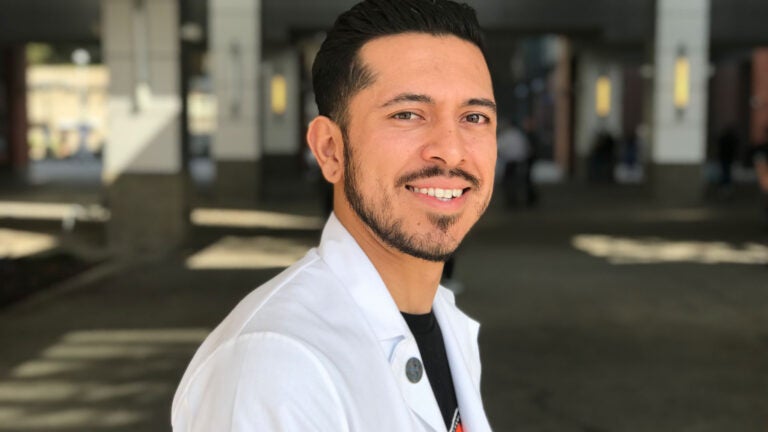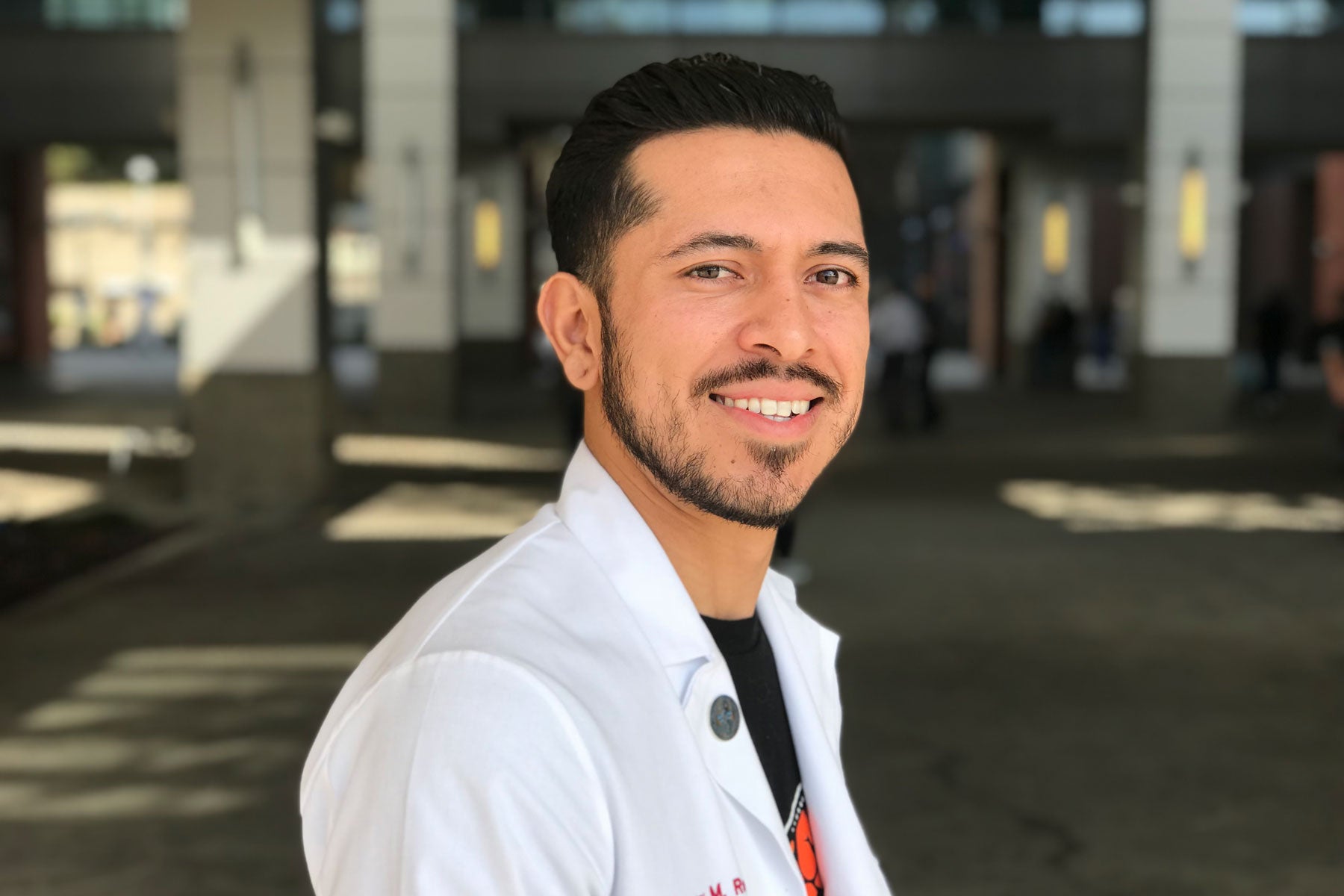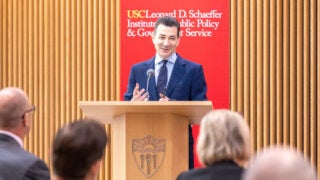
Andrew Rosales was inspired to pursue medicine after joining student organizations in college. (USC Photo/Paul Boutin)
Med student, first in his family to pursue a graduate degree, tells why he’s becoming a doctor
His interest in medicine and social justice was influenced by a lack of equitable health resources for minorities

Andrew Rosales is a first-year student at the Keck School of Medicine of USC. He hopes to encourage young people to choose a medical career as a means of bringing about change for the community. Rosales spoke with Paul Boutin of USC News.
The decision to pursue a career in medicine was not a commitment I made at a young age, nor did I ever really comprehend the possibility of being a doctor. In fact, it was not until my second year of junior college that I began to consider the idea of becoming a physician.
It was through my affiliation with student organizations, like the Chicanos for Creative Medicine and the Latino Medical Student Association, that I was first introduced to vast underrepresentation of minority students in the medical field, as well as the continual adverse perpetuation of health care disparities within communities of minority populations.
Beyond my interest and passion for the sciences and medicine, my decision to pursue medical school was rooted and influenced by social issues regarding our health care system, and lack of equitable health resources for minority populations. Born and raised in the East Los Angeles area, it never occurred to me that a physician shortage existed, nor did I realize the shortage progressed further within underserved communities.
I had no comprehension of what constituted a community as either being equitable or underserved. The lack of insurance and access to culturally sensitive health care was just a way of life for many families in the community.
I had no comprehension of what constituted a community as either being equitable or underserved. The lack of insurance and access to culturally sensitive health care was just a way of life for many families in the community. I rarely ever thought twice about such circumstances.
It was in my realization of just how negatively impacted the families of disenfranchised communities are with regard to health care disparities that my interest in medicine continually grew. I would eventually recognize a career as a physician to be one that bridges my passions both for medicine and for social justice in health care.
Not the traditional way
I am a first-generation graduate and medical student. There was a lot of self-navigating and learning I had to do on my own in trying to understand how I could get into medical school. And I was not the traditional student by any means: I began my education in junior college, took time away from school to work and then eventually transferred into a university to obtain my bachelor’s degree.
With little guidance and direction initially, I actively looked for programs, mentors and any opportunity I could find to help me achieve my goals. I immersed myself completely in my education and got involved in all I could that didn’t sacrifice my time or my grades.
As an undergraduate, I found opportunities in research, community service, humanitarian work, hospital volunteering, etc. With each experience, I gained new mentors. Those individuals who have advocated and supported me through every step and accomplishment in my education have guided me here today, training to become a doctor.
Bridging the Gaps is a summer research program hosted through the Office of Diversity with the Keck School of Medicine of USC. As a participant, I was granted the invaluable opportunity of conducting research within one of the laboratories at the Keck School. In my research, I obtained new mentors and gained integral knowledge to the processes of translation research and medicine. The program also provided us basic instruction in physiology and biostatistics, and lectures on some of the most current and ongoing research findings on campus.
As a first-generation med school student, I’ve needed to learn not only how to get into a good medical school, but how to thrive there. Commitment to diversity and inclusion, and a connection with the local community — these aren’t add-ons at USC. I’m surrounded by both mentors and peers. The encouragement and support I’ve received, the feeling of training in a familial environment conducive to doing my best, makes me both humble and proud to be a part of my school.



